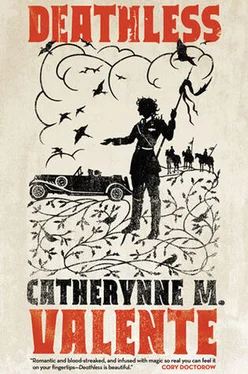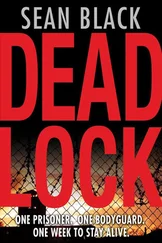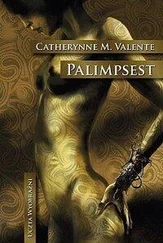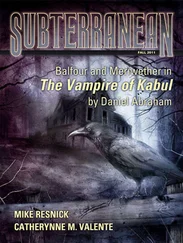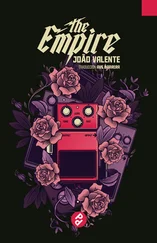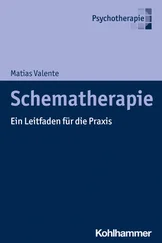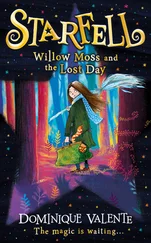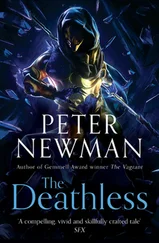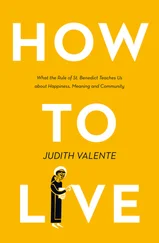That is not the secret thing. I saw that every day. The secret thing I saw only once. After the apple, when they finally let her alone, Marya went down to the basement. My Papa got skinny, too, but of course, of all of us, he couldn’t die from ugly and starving. He looked at her, and oh, if a house had ever looked at me like that, even bound up on the wall like poultry, I’d have never spoken to a human in all my days. Marya started sniffing and shaking, and her face broke up into pieces. Her shoulders fell, like when she was little and her mother was in a punishing mood. She was crying, not out of her eyes but out of her hungry bones.
Papa Koschei closed his eyes. A wound opened up on his neck just like a kiss. Redder than red. No knife, no anything. Blood dribbled out; and down in the basement, with me hiding under the staircase, Marya Morevna put her mouth on Koschei and drank like a baby, worse than a baby, her face all smeared with it. She kept on with her dry, shuddering crying the whole time.
* * *
Finally, the bread wasn’t bread at all and the butter wasn’t butter, because the bread was cottonseed cake and paper and dust, and the butter was wallpaper paste, and you still had to hold up a ration card to get a scrap of the stuff. Dust cakes, dust tarts, dust bread that didn’t even rise. Nobody had anything to burn because if you could burn it, you could eat it, and a fire does a dead man no service. So no embers for a poor domovaya, and her house also sick. Still, I thought, Tscha! Zvonok can live through this. I will tell you how we made soup in those days: Hold a ration card over a pot of boiling water for thirty minutes, so that the shadow of the card falls on the broth. Then eat it up, and don’t you dare spill a drop.
Once, Ivan Nikolayevich came home in his leather coat. The leather coat meant he had been busy arresting people. He went up to his bed and found Marya Morevna on it. Both of them were just sticks, sticks from old trees. He wrapped her up in his arms and their bones knocked together. He petted her hair like a cat. Long pieces of it came away in his hand. Ivan would not tell her what was wrong, but I knew because I could put my ear to the roof and hear the other houses say, There is meat in the Haymarket, and it is for sale. A fat old woman sells it. She wears a leather apron and a black fur coat; her cart has strange wheels, like claws. She has cutlets, dozens, dozens. For pearls she sells it, for watches, for rubles, for boots. Where did she get it all? Only a fool questions good meat.
Send a boy back to me with some, I told the domovoi I know in Maklin Prospekt.
You do not want this meat, he said to me.
I said back, Sofiya must have meat now or she will die, and this house cannot bear even one death or they will all start in on it.
So a boy arrived with two cutlets, for which I left a diamond necklace I swiped from Svetlana Tikhonovna years back. The boy didn’t like it one bit, but he took the necklace and left the meat. Kseniya Yefremovna shook her head.
I know what this is.
So do I. You’re not human. What difference does it make?
You cannot argue good sense. She fried it in a pan, and the house smelled very rich with it. Sofiya ate it all, every scrap, and paid us back with a small laugh. Fair trade, thought the both of us, and I had an ember out of it all. That was the night Ivan Nikolayevich wore his leather coat.
What could I do? Miserable means miserable.
* * *
When Sofiya died, Kseniya Yefremovna and Marya Morevna wrapped her in sheets and put her on her little yellow sled. They pulled her onto the road, and each of them left their hearts on the doorstep. Everyone else was pulling sleds, too. There were more sleds than snow. Sometimes, a wife would pull her husband to the cemetery, frozen as a pipe, and she’d die pulling him, so neither of them got where they were going, but they both did. Because of the ice nothing smelled, but everywhere stopped sleds grew mounds of snow like hair. I sat on Sofiya’s tummy as they pulled. A house makes a family, and they were mine. My last family.
Nobody talked. They breathed into their scarves and lugged and lugged. But no one was left to bury anyone else, so people just left the sleds in a pile by the cemetery gate. That’s where we left Sofiya, with Kseniya lying over her like a flower, with snow piling up on her hair. I said them a domovoi’s mass, but no one heard me because grief is louder than praying.
By the window that night, Marya Morevna said to me, I think I have finally found my home, for everyone I love is here .
Close up your head; your brain is getting loose.
Koschei is below me, and Ivan above. And out in the snow, everything has gone silver, and there is Madame Lebedeva making jelly with her lipstick, and Zemlehyed minding the linden trees, and Naganya down on the frozen river, pouring gasoline into her mouth so her trigger does not freeze. And you, and Kseniya Yefremovna, and little Sofiya. We are all together, at last.
I looked out the window where she had looked for months stitched back to back. And there in the dark glowed silver wounds in the street where another Leningrad bled through: another Neva, another Dzerzhinskaya Street, all splashed with silver. And there walked a woman with swan feathers in her hair, vanishing around a corner; and there walked a short, fat creature with dead leaves on his head; and there walked a woman like a gun. And there walked Kseniya, too, her chest stained and shimmering, holding baby Sofiya’s hand as the child jumped and tried to catch the silver balloons drifting just out of her reach.
Mamochka, she cried. So many!
In the middle of them all came walking like a kommissar a man with eyelids so long they brushed the snow out of his path, wearing a silver brocade and a silver crown. And as we watched, the Tsar of Death lifted up his eyelids like skirts and began to dance in the streets of Leningrad.
* * *
The shoulder blades of Marya Morevna touched behind her back, and the knees of Ivan Nikolayevich banged together in front of his belly. Icicles grew inside the house. Together they pulled down the wallpaper to get at the paste, and then they boiled the wallpaper to make bread. They were all mouth and bone, and their eyes slipped gears whenever they tried to meet. They ate their bread with paisley and flowers on the crust, and smeared paste on it like butter. Bread had never been bread, and butter had never been butter. They could not remember such things.
“The Germans have printed invitations to a gala ball at the Hotel Astoria,” Ivan Nikolayevich whispered, as though anyone but me might overhear him. “They will serve whole pigs, and a hundred thousand potatoes, and a cake that weighs five hundred pounds. I have seen the invitation myself. Embossed in gold ink, with a red ribbon. They say, ‘Leningrad is empty. We are only waiting for the crows to tidy things up a bit before the party.’”
I don’t believe you, said my Marya. She is so stubborn her heart has an argument with her head every time it wants to beat. I know. I raised her, I did.
When you are hungry, a whisper is a shout. “Whore! I will let them have you, and they will roast you on a spit with their suckling pig. What do you keep in the basement?”
You promised, Ivanushka.
“Fuck your promises. You are keeping food from me down there, I know it. Devil bitch. Kulak goat-wife.”
You promised, Ivanushka.
“Promises to the devil’s woman are no promises! No court would hold me! You are hoarding food, and you put a spell on me, in Irkutsk! Why else would I want a sack like you?”
I hid behind the stove. Marriage bears few witnesses.
Читать дальше
